In response to US President Donald Trump's decision to increase tariffs on imported goods, the EU announced its response, the UK was "not in a hurry", while Japan proposed an exemption; the launch of a China-Afghanistan cargo ship; Europe's lack of gas... are prominent world economic news.
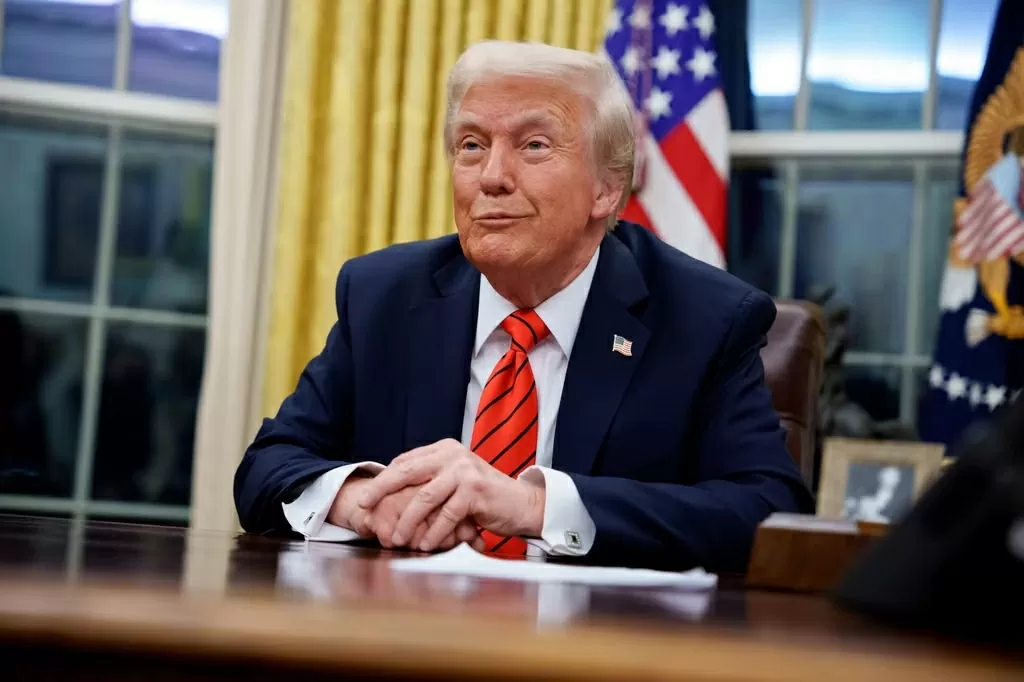 |
| On February 10, US President Donald Trump increased tariffs on imported steel and aluminum to 25% with "no exceptions or exemptions". (Source: Getty Images) |
US economy
US President Donald Trump is showing his determination to hit countries back by imposing tariffs equivalent to those they impose on US goods, but the move could leave consumers in the world's largest economy bearing the brunt of the costs.
In Trump’s view, it is unfair for other countries to impose higher tariffs on US goods than the US imposes on their own goods. He stressed that if other countries impose tariffs on US goods, the US would respond in kind.
On February 10, President Trump increased tariffs on imported steel and aluminum to 25% with “no exceptions or exemptions.” White House trade adviser Peter Navarro said government officials are taking the time to study and identify cases of unfair trade policies.
According to data from the World Bank, the average US tariff rate is 1.5% as of 2022. Economists at Deutsche Bank estimate that if the US applied tariffs equivalent to those of other countries on US goods, this rate could rise to nearly 5%.
In some cases, the tariff differential with the US is huge. For example, in 2022, the average US tariff on imports from India will be 3%, while the average Indian tariff on US goods will be 9.5%.
Economists at Goldman Sachs, meanwhile, are more bullish on retaliatory tariffs. While acknowledging that they pose risks to the economy, they say they could help reduce trade uncertainty. In a note on the morning of February 11, Goldman Sachs said that President Trump’s comments suggest he sees the policy as an alternative to the 10-20% across-the-board tariffs he has previously mentioned.
If Mr Trump abandons full-scale tariffs and moves to retaliatory tariffs, it could prevent a larger trade war.
Chinese Economy
* In January, vehicle sales in China, the world's largest auto market, fell 12% year-on-year, the sharpest decline in nearly a year amid fierce competition among automakers.
Some analysts also said demand for cars had been compressed, as manufacturers raced to meet sales targets by the end of 2024, and consumers took advantage of government subsidies before they were extended last month.
* On February 10, a cargo train carrying communications equipment departed from Chongqing, China, for Hairatan, Afghanistan. The event marked the launch of the China-Afghanistan cargo train service .
The cargo train, departing from Duanjie Village Station in Chongqing, will travel via Khorgos Port of Xinjiang Uygur Autonomous Region, through Kazakhstan and Uzbekistan, and is expected to reach Afghanistan within 12 to 15 days.
The China-Afghanistan railway can shorten transportation time by 3-5 days and can reduce logistics costs by 15-20%.
European Economy
* European natural gas prices have surged 30% in the past month alone due to prolonged cold weather, limited renewable energy sources and supply concerns, pushing gas reserves to their lowest level since 2022. Natural gas prices on the TTF Exchange (Netherlands) rose to 59 euros/megawatt hour on February 11, the highest level in two years.
Data from Gas Infrastructure Europe shows that the average reserve level across the European Union (EU) has fallen to 48.48%, much lower than normal at this time of year.
* Leaders of 10 European Union (EU) member states, mainly in Central and Eastern Europe, have called on the European Commission (EC) to focus on supporting high-speed rail connections .
In a joint letter, the countries expressed their support for an action plan for a European high-speed rail network, stressing the importance of cross-border projects. The leaders called on the EC to prioritise key projects, citing the lack of high-speed rail connections as a barrier to the internal market and EU competitiveness.
* Experts Inga Fechner and Ewa Manthey of the Dutch financial group ING warned that the trade war between the US and Europe "will get worse" as Washington continues to increase tariffs on the EU and other countries.
Conflict with Europe is “inevitable” as US President Donald Trump pushes for stronger tariffs, two experts said.
"President Trump has laid the groundwork for further trade tensions. This will not be the last tariff move. The EU will certainly retaliate, and the fight will intensify," ING's report said.
The EC has said it will not hesitate to respond to new tariffs from the US. Mr Trump has repeatedly criticised the EU, saying the bloc does not facilitate US goods.
* In contrast to the EU's tough response, the British government said on February 11 that it would not immediately retaliate after US President Donald Trump announced a 25% tariff on all imported steel and aluminum.
Speaking to the British Parliament, Trade Minister Douglas Alexander said the steel tariffs would not come into effect before March 12 and Britain would use this time to negotiate with the US government and consider options.
A spokesman for the British Prime Minister also said the country was discussing with the US the details of President Donald Trump's steel tariff order.
Downing Street has not ruled out retaliatory tariffs, but ministers have admitted such a move would have little impact on the US, while risking Britain being hit with additional tariffs from the country.
* The Central Bank of the Russian Federation announced on February 12 that the average maximum interest rate on ruble deposits at the 10 largest Russian banks that attract the largest deposits decreased in the first 10 days of February 2025 compared to the previous 10 days and reached 21.44%/year.
According to the Central Bank of Russia, the interest rate for the last 10 days of January 2025 is 21.47%, and for the middle 10 days of January 2025 is 21.52%.
* Germany's trade surplus with the United States has hit a record high , data from the Federal Statistical Office showed, as countries await US President Donald Trump's decision on imposing tariffs on imports.
Germany's trade surplus with the US is set to rise to 70 billion euros ($72 billion) in 2024, up from 63.3 billion euros in 2023.
Holger Goerg from the Kiel Institute for the World Economy (IfW) warned that the trade surplus could shrink if the US imposes new tariffs on German goods, a measure that President Trump believes will boost US manufacturing.
* Afghanistan has become the largest importer of Russian flour in 2024, with total payments doubling to $80 million. Russian Ambassador to Afghanistan Dmitry Zhirnov said that Russia's food and agricultural production is the foundation for economic cooperation between the two countries, in addition to other potential areas such as railway construction, irrigation projects and new energy production.
Japanese and Korean Economy
* Japan has asked US President Donald Trump to exempt its companies from new tariffs on steel and aluminium, just days after Japanese Prime Minister Shigeru Ishiba held his first summit with Mr Trump.
Tokyo will carefully examine the impact of US tariff measures on Japanese companies and will take necessary actions.
Finance Minister Katsunobu Kato and Chief Cabinet Secretary Yoshimasa Hayashi also conveyed the Japanese government's cautious stance on the issue in separate press conferences.
* Major Japanese companies including Toyota, Mitsubishi and SoftBank have banned employees from using China's DeepSeek generative AI model , a move that reflects growing concerns about the model's data security. The Japanese government has warned users that DeepSeek collects and stores data on servers in China and handles it in accordance with Chinese law.
* The Korea Development Institute (KDI) on February 11 lowered its growth outlook for the country's economy this year to 1.6 percent, down 0.4 percentage points from its previous forecast issued in November last year, citing growing uncertainties both at home and abroad.
The downward revision of the growth forecast was due to domestic political instability that has undermined economic sentiment, while externally, policy changes in the US have worsened the trade situation.
KDI's latest forecast for South Korea's economic growth is much more pessimistic than those of other major organizations, including the Organization for Economic Cooperation and Development (OECD) at 2.1 percent, the International Monetary Fund (IMF) at 2 percent and the Bank of Korea (BoK) at 1.9 percent.
* The IMF in a report released on February 7 said that the South Korean economy has recovered in 2024 after a year of sharp recession, but the outlook remains uncertain due to many risks.
South Korea's economic growth has recovered in 2024, inflation has reached its target, and financial stability risks have decreased thanks to the government's prompt policy responses, according to the IMF.
ASEAN Economy and Emerging Economies
* The Philippines has imposed a temporary ban on the import of livestock products from Germany due to an outbreak of foot-and-mouth disease (FMD) in the European country. The ban is effective immediately and will last until further notice. Some products are exempted, such as high-temperature pasteurized fresh milk and in vivo bovine embryos,...
Germany notified the World Organization for Animal Health of the foot-and-mouth disease outbreak in January 2025. Last year, the Philippines imported nearly 3,178 tons of beef from Germany.
* Indonesian Coordinating Minister for Economic Affairs Airlangga Hartarto has expressed optimism that trade volume between Indonesia and Saudi Arabia will increase in the coming time.
On February 12, Minister Hartarto met with Saudi Arabia's Minister of Economy and Planning, Faisal F. Alibrahim, on the sidelines of the World Government Summit 2025 in Dubai, United Arab Emirates (UAE).
At the meeting, Mr. Hartarto emphasized that Indonesia plans to make the most of the Free Trade Agreement with the Gulf Cooperation Council to continue the 11% increase in export volume to Saudi Arabia achieved in 2024.
At the World Government Summit 2025, Saudi Arabia also expressed its desire to expand tourism cooperation with Indonesia, specifically exploiting the tourism potential of Sumatra Island.
* The Tourism Authority of Thailand (TAT) forecasts about 3.5 million foreign visitors to Thailand in February 2025 , up 5% year-on-year, with all major markets increasing between 2% and 20%, except for the Chinese market due to safety concerns.
Germany and Japan are expected to see the strongest growth in February 2025, up 20% (124,000 passengers) and 18% (123,000 passengers) year-on-year, respectively. Meanwhile, Russia, the largest long-haul market, is expected to see moderate growth of 3% to 211,000 passengers.
Despite a 7% decrease, arrivals from China remain the largest source market with 630,000 arrivals in February 2025.
Source: https://baoquocte.vn/kinh-te-the-gioi-noi-bat-soi-suc-vi-don-thue-quan-cua-tong-thong-my-donald-trump-nhieu-ong-lon-nhat-ban-cam-dung-deepseek-trung-quoc-304123.html






























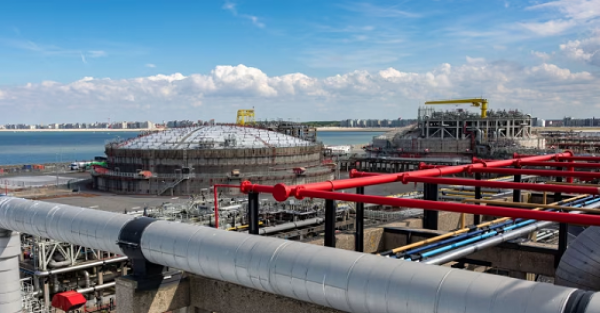

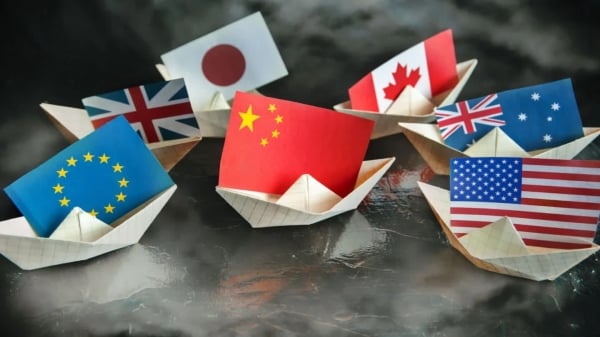
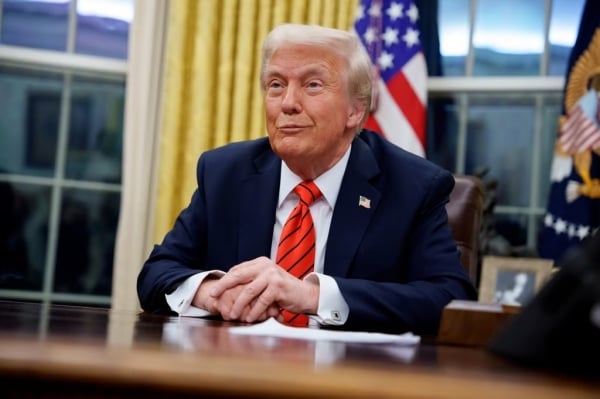
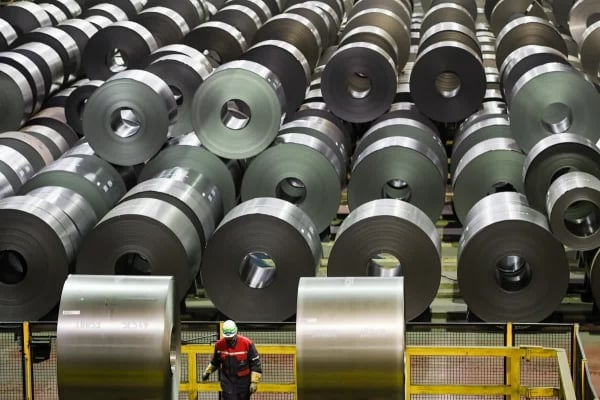
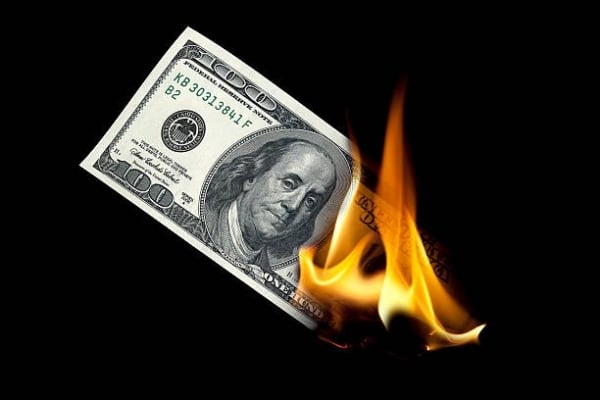


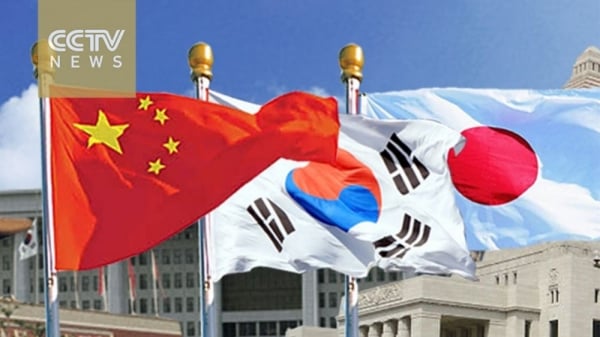

















Comment (0)